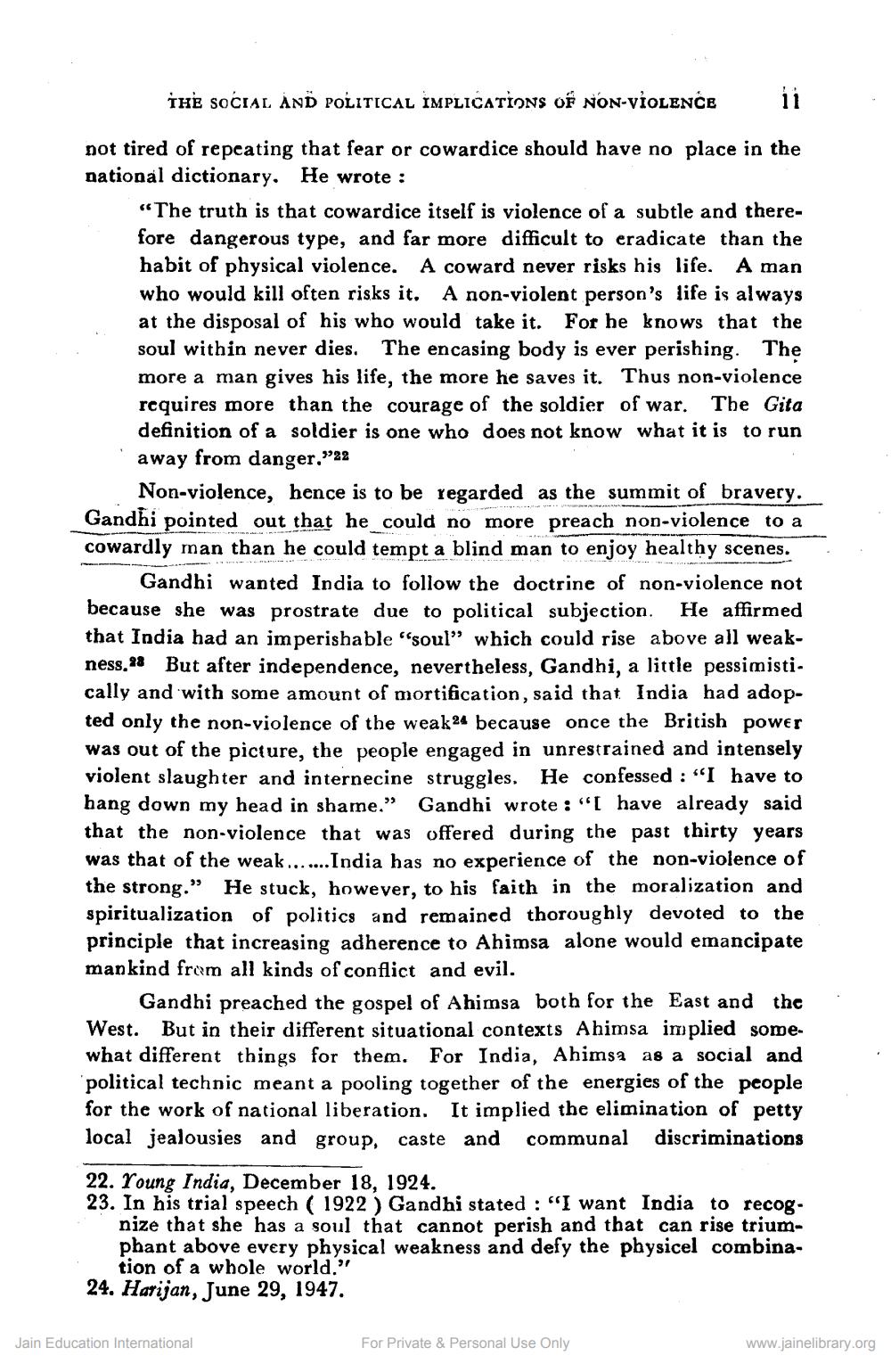________________
THE SOCIAL AND POLITICAL IMPLICATIONS OF NON-VIOLENCE
ii
not tired of repeating that fear or cowardice should have no place in the national dictionary. He wrote:
"The truth is that cowardice itself is violence of a subtle and therefore dangerous type, and far more difficult to eradicate than the habit of physical violence. A coward never risks his life. A man who would kill often risks it. A non-violent person's life is always at the disposal of his who would take it. For he knows that the soul within never dies. The encasing body is ever perishing. The more a man gives his life, the more he saves it. Thus non-violence requires more than the courage of the soldier of war. The Gita definition of a soldier is one who does not know what it is to run away from danger."22
Non-violence, hence is to be regarded as the summit of bravery. Gandhi pointed out that he could no more preach non-violence to a cowardly man than he could tempt a blind man to enjoy healthy scenes.
Gandhi wanted India to follow the doctrine of non-violence not because she was prostrate due to political subjection. He affirmed that India had an imperishable "soul" which could rise above all weakness. But after independence, nevertheless, Gandhi, a little pessimistically and with some amount of mortification, said that India had adopted only the non-violence of the weak24 because once the British power was out of the picture, the people engaged in unrestrained and intensely violent slaughter and internecine struggles. He confessed: "I have to hang down my head in shame." Gandhi wrote: "I have already said that the non-violence that was offered during the past thirty years was that of the weak.......India has no experience of the non-violence of the strong." He stuck, however, to his faith in the moralization and spiritualization of politics and remained thoroughly devoted to the principle that increasing adherence to Ahimsa alone would emancipate mankind from all kinds of conflict and evil.
Gandhi preached the gospel of Ahimsa both for the East and the West. But in their different situational contexts Ahimsa implied some. what different things for them. For India, Ahimsa as a social and political technic meant a pooling together of the energies of the people for the work of national liberation. It implied the elimination of petty local jealousies and group, caste and communal discriminations
22. Young India, December 18, 1924.
23. In his trial speech ( 1922) Gandhi stated: "I want India to recognize that she has a soul that cannot perish and that can rise triumphant above every physical weakness and defy the physicel combination of a whole world."
24. Harijan, June 29, 1947.
Jain Education International
For Private & Personal Use Only
www.jainelibrary.org




